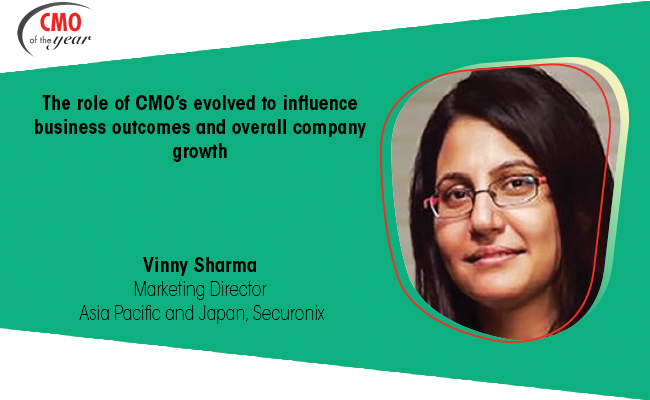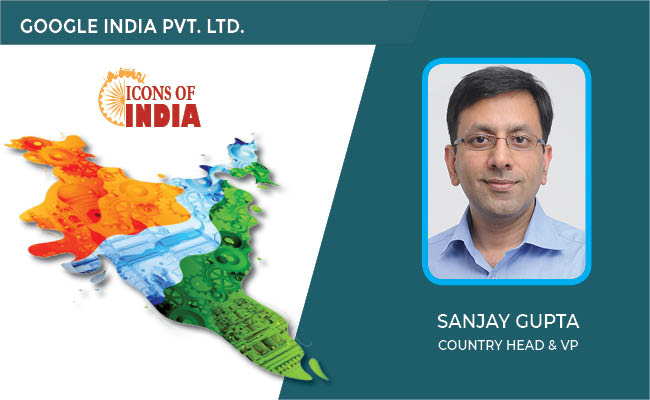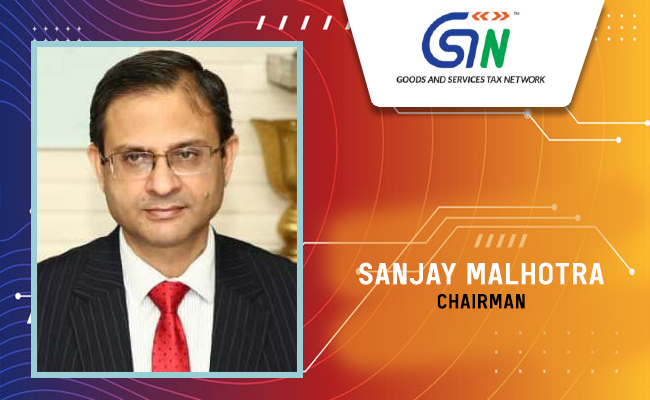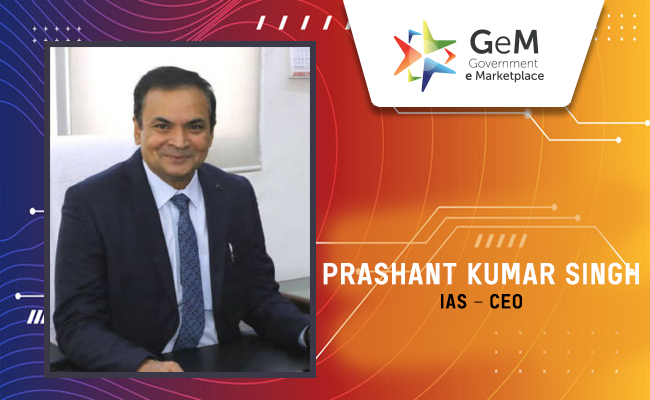The role of CMO’s evolved to influence business outcomes and overall company growth
By MYBRANDBOOK

Vinny Sharma
Marketing Director - Asia Pacific and Japan, Securonix
The evolving role of CMOs
The role of the Chief Marketing Officers (CMO) has undergone a paradigm shift in the last decade. CMOs are frequently referred to as "Chief Customer Officers" due to their changing roles and increased importance. According to numerous reports, three fourths of CMOs are now in charge of contributing to business growth and the use of data and technology. One could easily argue that all businesses have become more customer-focused in recent years, operating directly under the banner of customer experience. It is safe to say that the role of the CMO has evolved to a deeper level, which directly influences business outcomes and overall company growth.
Contribution towards strategic business discussions
The CMO's primary role is to be customer champions, frontline brand defenders, stewards of internal morale and culture, and drivers of company growth initiatives. However, this has recently changed within the C-suite, as CMOs are now expected to deliver more growth and resilience than ever before. Because of their increased importance and active participation in the day-to-day operations of the company, CMOs now wield considerable power within their organisations. It is also important to note that the scope of the CMO's role varies across the organisation depending on the size and function of the company. However, many CMOs today face the challenge of managing the intersections, and sometimes collisions, with other C-suite roles.
Real-time marketing to drive sustainable growth
It is not incorrect to state that CMOs should enable real-time marketing to drive sustainable growth because of changing marketing dynamics. Upskilling and adapting to new technology, especially in the post Covid world is a top priority for all CMOs. As we are headed to digital transformation, brands are looking for unique virtual platforms to engage customers. So, marketers have to rely heavily on tech to decode data, use AI to simulate experiences and drive efficacies in marketing using data analytics. Regardless of the CMO's new data-focused responsibilities, only 12% of marketers have the necessary data access, capabilities, and talent to drive and extract high value from real-time marketing. Despite the increased adoption of real-time marketing, some CMOs continue to perceive the traditional approach, for which they must modernise their data capabilities and up-skill and re-skill their workforces to compete with these data-driven marketers and generate sustainable growth.


Nazara and ONDC set to transform in-game monetization with ‘
Nazara Technologies has teamed up with the Open Network for Digital Comme...

Jio Platforms and NICSI to offer cloud services to government
In a collaborative initiative, the National Informatics Centre Services In...

BSNL awards ₹5,000 Cr Project to RVNL-Led Consortium
A syndicate led by Rail Vikas Nigam Limited (abbreviated as RVNL), along wi...

Pinterest tracks users without consent, alleges complaint
A recent complaint alleges that Pinterest, the popular image-sharing platf...


ICONS OF INDIA : SANJAY GUPTA
Sanjay Gupta is the Country Head and Vice President of Google India an...

Icons Of India : AMIT CHADHA
Amit Chadha serves as the CEO and Managing Director of L&T Technology ...

Icons Of India : Deepak Sharma
Deepak Sharma spearheads Schneider Electric India. He brings with him ...


GSTN - Goods and Services Tax Network
GSTN provides shared IT infrastructure and service to both central and...

GeM - Government e Marketplace
GeM is to facilitate the procurement of goods and services by various ...

HPCL - Hindustan Petroleum Corporation Ltd.
HPCL is an integrated oil and gas company involved in refining, market...


Indian Tech Talent Excelling The Tech World - Aneel Bhusri, CEO, Workday
Aneel Bhusri, Co-Founder and Executive Chair at Workday, has been a le...

Indian Tech Talent Excelling The Tech World - JAY CHAUDHRY, CEO – Zscaler
Jay Chaudhry, an Indian-American technology entrepreneur, is the CEO a...

Indian Tech Talent Excelling The Tech World - ANJALI SUD, CEO – Tubi
Anjali Sud, the former CEO of Vimeo, now leads Tubi, Fox Corporation�...